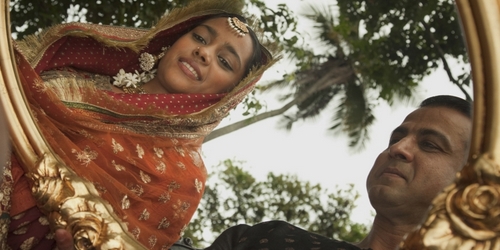 Over thirty years after the novel’s publication, Salman Rushdie’s film adaptation of his Booker prize-winning novel has come to fruition. With so many years of waiting and anticipation, the film has a lot to live up to, and the complicated nature of the book is a challenging body of work to attempt to fit into 148 minutes of film.
Over thirty years after the novel’s publication, Salman Rushdie’s film adaptation of his Booker prize-winning novel has come to fruition. With so many years of waiting and anticipation, the film has a lot to live up to, and the complicated nature of the book is a challenging body of work to attempt to fit into 148 minutes of film.
Rushdie wrote the screenplay with Oscar-nominated director, Deepa Mehta, resulting in a whimsical interpretation of an epic tale with beautiful imagery and magical powers that gives the story a fairytale quality. The problem with this approach is one that is common in films with story lines spanning several decades, it often becomes difficult to keep up with the dates and times in which the events of the story are taking place.
Often film adaptations of these kinds of stories chose to focus on certain aspects of the novel rather than attempting to include all the subplots within the film, but understandably, Rushdie incorporates the many storylines into the script, likely in hopes of staying true to the original narrative. It’s an ambitious goal, and one that will likely be met with some criticism.
That being said, perhaps it’s a film one has to watch more than once to fully appreciate the number of diverging plots including multiple characters and spanning several years. The performances by Satya Bhabha, who plays the main character and story narrator, Saleem, and other ensemble characters, such as Seema Biswas, the hospital nurse who switches Saleem with another child at birth so that “the poor may be rich and the rich may be poor,” also help to carry the film through it’s multiple storylines.
What’s remarkable about Rushdie’s script, is that despite the multiple narratives introduced, none of them are left unresolved at the close of the film, and those who aren’t familiar with the novel will be pleasantly surprised at the way he ties everything together in such a way that inspires thought-provoking questions about love, and what it means to be a family.



